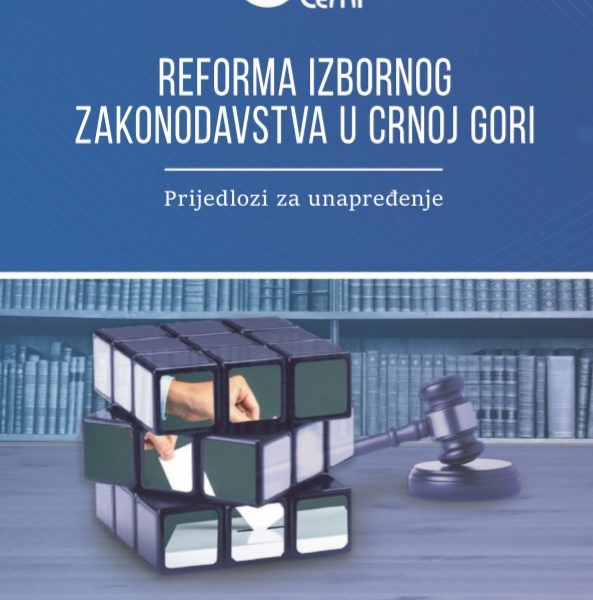Since its establishment in 2000, CeMI has consistently emphasized the imperative need for electoral framework reform. Regrettably, Montenegrin legislators have never approached this issue with the requisite attention it demands. Amendments to electoral regulations occurred haphazardly, lacking transparency, often intertwined with political negotiations driven by contemporaneous political crises. Montenegro finds itself in the final phase of negotiations for EU membership, yet the electoral process remains fraught with challenges. Consequently, it's unsurprising that the EU considers free and fair elections a priority for advancing in the accession process, particularly given Montenegro's advanced negotiation status. Montenegrin citizens harbor significant distrust in the electoral process and the associated institutions. Only 40.3% of respondents express confidence in the institutions responsible for conducting elections. Although this figure represents a slight improvement from the previous year's 35.4%, it remains disappointingly low. The assessment of the fairness and freedom of the 2016 parliamentary elections by 42.9% of respondents is countered by 33.5% who provided a negative evaluation, echoing the sentiment from the preceding year. The absence of a majority believing in the fairness of the elections, coupled with one-third of respondents deeming them unfair, is a serious cause for concern necessitating actions to rebuild confidence in the electoral process.
The parliamentary boycott by political parties has eroded citizens' trust in institutions while obstructing electoral legislation reform. Public support for the parliamentary boycott is minimal, with only 19.9% of respondents endorsing it. Electoral framework reform is imperative, and it must not devolve into political bargaining but should instead be comprehensive and inclusive, echoing the key recommendation of the OSCE/ODIHR, and aligning with the aspirations of Montenegrin non-governmental organizations tasked with monitoring elections. CeMI advocates for electoral system reform, including the introduction of a mixed electoral system, resembling a combination of proportional and majority voting. While the optimal solution may mirror models from Germany and New Zealand, introducing open party lists, where voters can choose multiple candidates within one list, represents a significant step forward. Without personalization of the electoral system, further democratization of Montenegrin society remains stymied. CeMI contends that electoral reform should address candidate selection for parliamentary positions, ensuring a democratic process, alongside the democratic election of party leadership.
More than half of respondents advocate for legal mandates requiring parties to maintain records of their members (party electorate), direct election of party leadership by party members, and democratic nomination procedures for candidates for deputies. A notable increase, with 62.8% of respondents supporting the election of party leadership through open party elections, compared to 45.1% in 2016, underscores a growing desire for participatory democracy. CeMI advocates for the professionalization and depoliticization of the State Election Commission, municipal election commissions, and polling boards. The survey indicates that 65.5% of respondents favor a State Election Commission comprising a blend of political party representatives and independent experts, with an emphasis on expert predominance. Additionally, 74.9% of respondents believe electoral committees should comprise a mix of political party representatives and local administration officials.
This study serves as a consolidation of findings gathered by CeMI not only through this project but also through monitoring the last three election cycles spanning 2016 to 2018. It incorporates segments from final reports published by CeMI and other specialized studies conducted by our organization. CeMI perceives this study as a significant contribution to the ongoing process of electoral reform.
